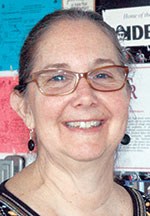Main Site Navigation
- Archbishop
- Priests & Staff
- Parishes
- Schools
- Offices
- All Agencies and Offices
- Archdiocesan Archives
- Bp Bruté College Seminary
- Catechesis
- Catholic Cemeteries
- Causes of Canonization
- Catholic Community Foundation
- Child Safety / Misconduct Reporting
- Clergy and PLCs
- Corrections Ministry
- Creation Care Ministries
- Crisis Resource Center
- CYO
- Deacon Formation
- Ecumenism and Interreligious Affairs
- Evangelization
- Evangelizing Catechesis
- Fatima Retreat House
- Finance
- Human Life and Dignity
- Human Resources
- Indiana Catholic Conference
- Insurance
- Intercultural Ministry
- Lay Ministry
- Marriage and Family Life
- Mission Office
- My House Archindy
- Pastoral Music
- Special Needs Catechesis
- Stewardship
- St. Mary's Child Center
- Tribunal
- Vocations
- Worship
- Young Adult Ministry
- Youth Ministry
- Charities
- CC Indianapolis
- CC Bloomington
- St Elizabeth-CC New Albany
- CC Tell City
- CC Terre Haute
- St. Elizabeth | Coleman
- Adoption Bridges of Kentucky
- Disaster Relief
- Refugee and Immigrant Services
- Social Concerns
- Parish Social Ministry (PSM)
- Anti-Trafficking Ministry
- Catholic Relief Services (CRS)
- Catholic Campaign for Human Development (CCHD)
- Justice for Immigrants (JFI)
- The Criterion
- Support Us
 In 26 years of teaching at Catholic schools in the archdiocese, Lynne Locke has developed a definite approach to help students make the most of their talents.
In 26 years of teaching at Catholic schools in the archdiocese, Lynne Locke has developed a definite approach to help students make the most of their talents.